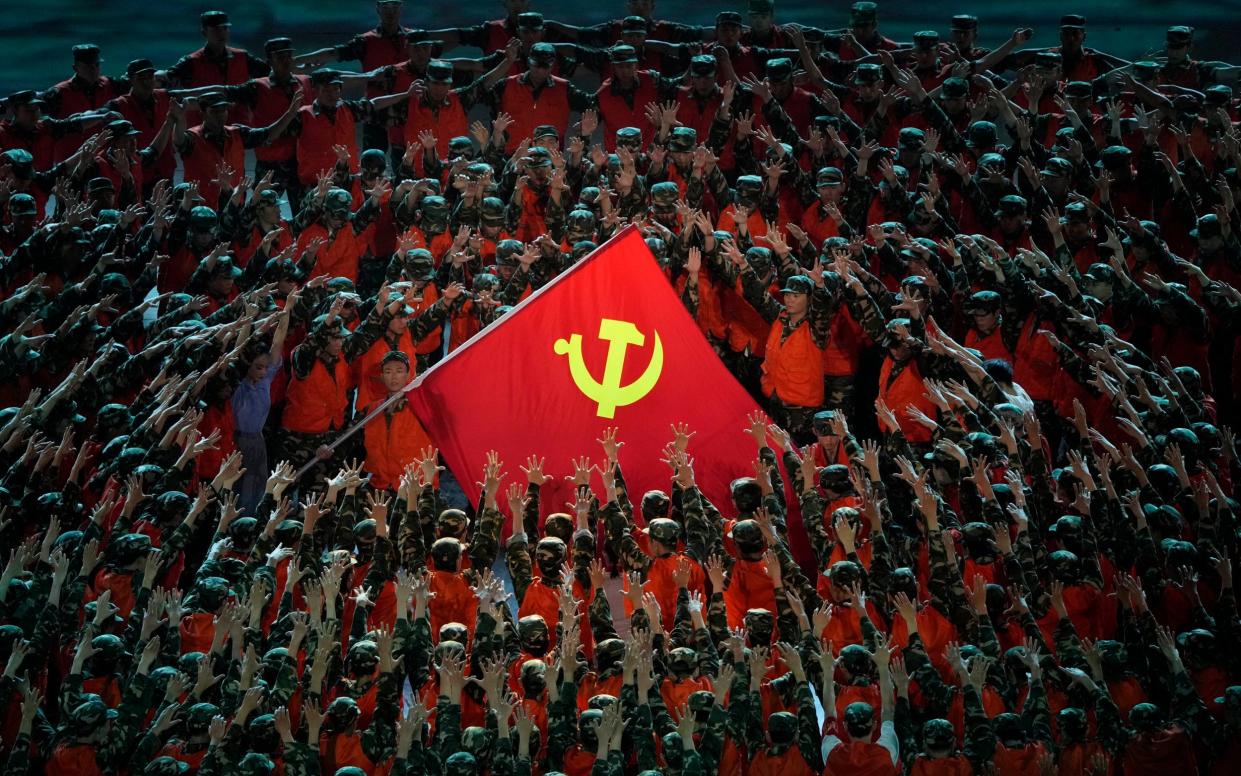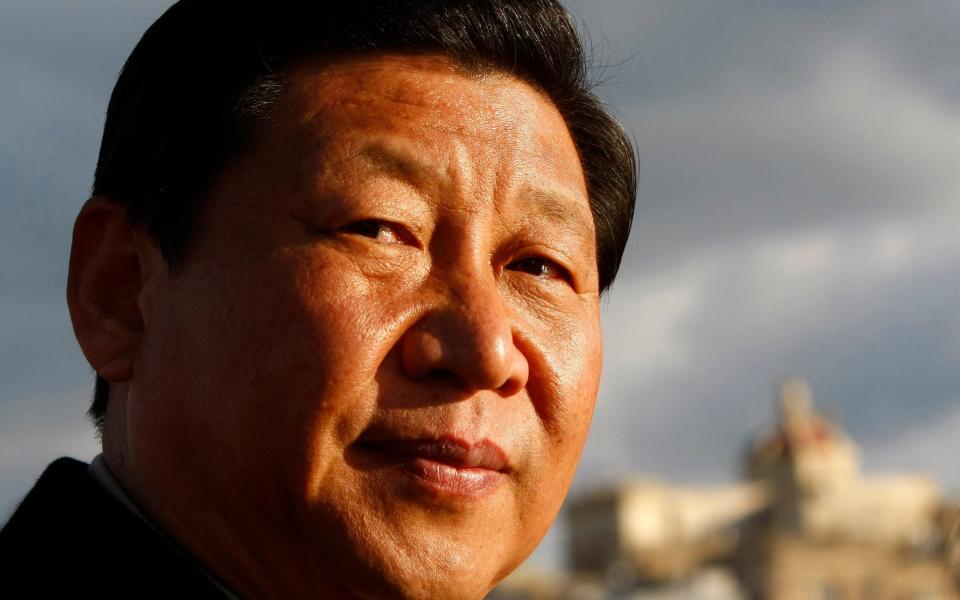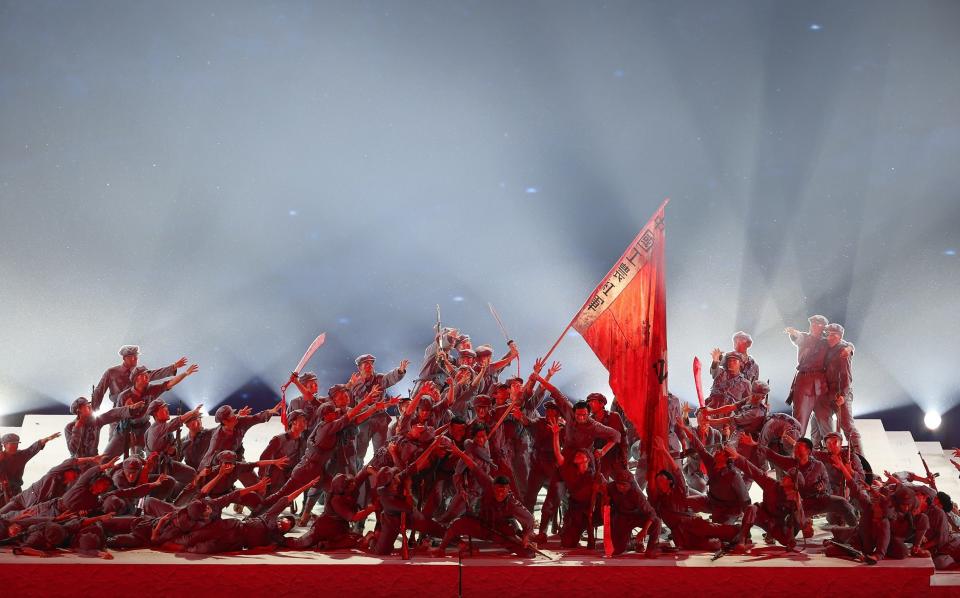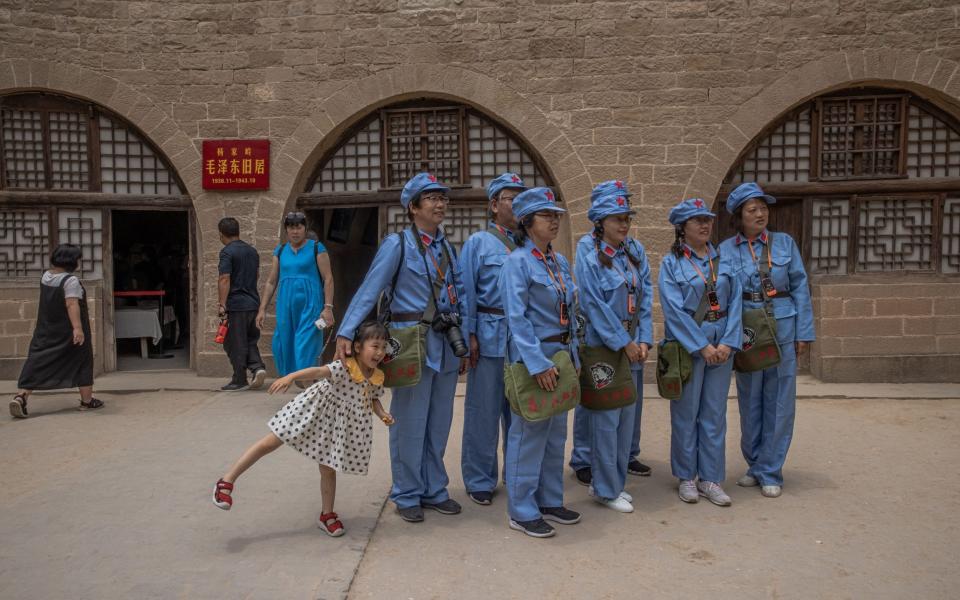Can the Chinese Communist Party last another 100 years?

- Oops!Something went wrong.Please try again later.
Beijing is awash in red this week as the Chinese Communist Party celebrates its centenary on July 1 – red flags, red fireworks, red medals, red flowers. There are even "red" propaganda rap songs – in content, anyway.
China’s carefully choreographed celebration is aimed at glorifying the party’s history and cementing loyalty in the nation of 1.4 billion people – delivered in broad platitudes.
“We have written a splendid chapter in the history of the Chinese nation and entire human race,” leader Xi Jinping proclaimed this week from the Great Hall of the People.
Outside, scarlet propaganda banners read: “Without the Communist Party, there is no new China.”
The message is clear: the party was, is and always will be the vanguard of China and its people.

For Xi Jinping, drilling that home is increasingly important, and could underpin the party’s chances of lasting another 100 years at a time when China is facing increasing scrutiny on the world stage.
The party’s big birthday comes as global criticism has grown over human rights abuses in Xinjiang and Hong Kong, its handling of the coronavirus pandemic, and coercive economic policies designed to squeeze nations in diplomatic spats.
But China has long been remarkably resilient – it surprised the world with an economy that flourished to become the world’s second-largest with a Communist government in charge, something many had thought was unlikely.

Everything Mr Xi has done since taking the reins in 2012 has been to ensure the Party will – someday – outlast him, and that his legacy will be remembered.
That’s what many experts say has driven his anti-corruption campaign, allowing him to oust political opponents.
It’s also why there’s never mention of blemishes that tar the official record – famine during Chairman Mao’s disastrous Great Leap Forward, the Tiananmen Square massacre – all simply deleted.
Indeed, an ongoing crackdown on “historical nihilists” aims to ensure only sanctioned versions of party history are shared, so that past mistakes won’t seed present discontent with the country’s leaders.
To further stamp out dissent, Beijing imposed a national security law on Hong Kong a year ago that took effect the day before July 1, a bold, sweeping move that few anticipated.
It was a symbolic move, as that date is both the party’s birthday and the anniversary of when the city was returned from British to Beijing rule – making it clear, yet again, who exactly was in charge.
Mass arrests. Newspaper raids. Banned protests. Exiled activists. The Telegraph's new podcast, Hong Kong Silenced, documents how life in the city has been turned upside down in the past year. Listen to the first episode now on wherever you get your podcasts. telegraph.co.uk/hksilenced
Mr Xi has been in power for nine years and looks unlikely to relinquish his leadership role for years to come – he did, after all, abolish term limits a few years ago.
As part of his mission to ensure the party’s legitimacy and stability, he has put himself at the core of China, building a personality cult in the vein of Mao.
At a museum in Yan’an, a central Chinese city that was a wartime stronghold of Mao, an exhibit extols the Party’s achievements over the last 100 years.

Only quotes from Mr Xi and Mao are emblazoned on plaques displayed, glossing over the aphorisms of China’s past revered leaders, like Deng Xiaoping.
Mr Xi has even sought to make a Mao saying his own – "east, west, north, south, centre; the party leads all.”
To a certain extent, Mr Xi likely cares little about what the rest of the world thinks; to him, what may matter most is keeping the party in place as the ultimate authority, with him, steady at the helm.
So the answer to the question of whether the party can last another 100 years is: maybe, and it absolutely intends to try.

